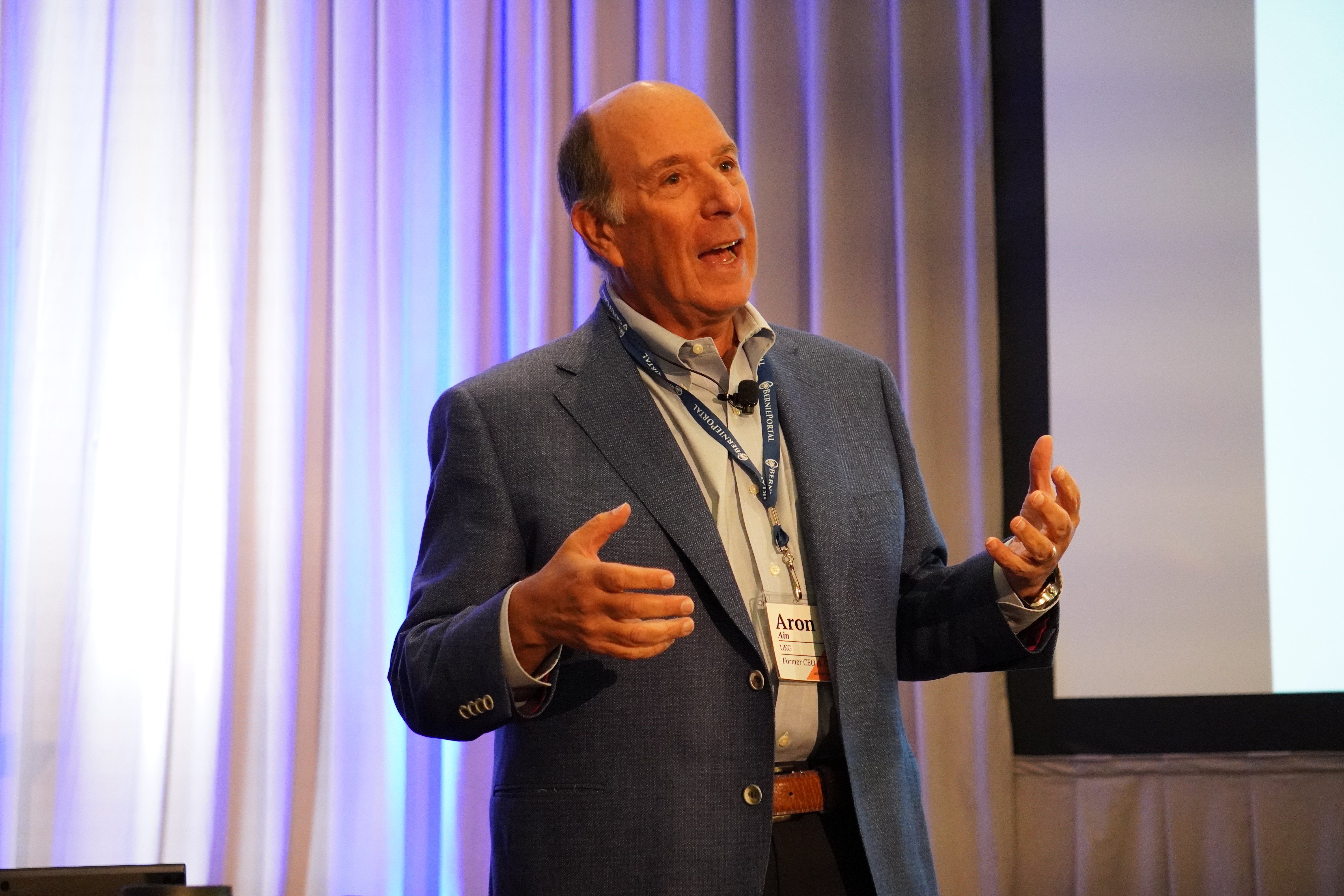
Written by
Aidan Farrish
Aidan is an aPHR-certified writer on the marketing team at BerniePortal. She writes about HR, healthcare, and benefits.
What Are Soft Skills? 7 Key Traits Every HR Pro Should Master

Soft skills are the yin to hard skills’ yang. You need both to achieve a perfect balance—especially in HR. But what are soft skills, exactly? And which ones matter most for small business HR professionals?
Soft skills refer to personal and interpersonal traits that shape how you work with and lead others. They include communication, emotional intelligence, problem-solving, and other qualities that impact collaboration and workplace culture. While hard skills like processing payroll or navigating compliance are essential, your soft skills are what help you manage people effectively and build trust across your organization.
To make them easier to remember, use this mnemonic device:
Rose’s Retriever, Buddy, Regularly Licks Everyone’s Faces!
That stands for:
Redirecting, Reframing , Boosting, Reminding, Listening, Engagement (NOT!), and Figure-it-out Factor.
Let’s define what soft skills are in more detail, explore seven soft skills examples every HR pro needs, and share some resources to help you build them further.
What Are Soft Skills?
Soft skills are interpersonal abilities and character traits that shape how you work, communicate, and build relationships in the workplace. These skills affect how you solve problems, manage conflict, and connect with others—making them especially important in HR, where you're often guiding and supporting employees across your organization.
Unlike hard skills, which are technical and measurable (like running payroll or managing benefits), soft skills are more nuanced. They often come naturally to some people but can be developed over time with practice and intention.
If you’ve ever worked with someone who stays calm under pressure or knows just how to ease tension during a tough conversation, you’ve seen soft skills in action. These subtle abilities are often the difference between a good HR professional and a great one.
Soft Skills Examples: 7 HR Must-Haves You Should Know
There’s no shortage of soft skills that HR professionals can develop, but these seven are especially critical when managing people and maintaining workplace culture.
-
Redirecting: You know when employees ask you things that you must direct to others or to different topics? ‘Redirecting’ is when you carefully maneuver conversations to achieve a certain goal or point employees in the right direction. For example:
Jenny asks her HR Party of One what she should invest her 401(k) money in. HR isn’t a financial advisor. Instead of answering Jenny, HR waits a little over a day and responds with, “That sounds like a great question for our 401(k) administrator—you can find their information in the Culture Guide.”
-
Reframing: You can reframe conversations to help employees align their thoughts with the organization. For example:
Jenny works in an in-person role but says that the company should let everyone work remotely. HR replies, “It sounds like you're looking for flexibility, and the company offers flexibility by _______. It sounds like you'd like additional ways that the company offers flexibility, is that right? Are the ways we offer flexibility not serving you in your role? We are always looking for new ideas on how to do more.”
- Boosting: Being the workplace cheerleader matters. Boosting is all about recognizing wins, giving shoutouts, and encouraging managers to do the same.
-
Reminding: You can ensure the workforce is aligned with set goals or keeps important things front-of-mind. For example:
HR may say, “Remember, managers, ______ (our CEO) wants you to consider recruiting to be 20% of your role. How much time this week have you spent on it?” -
Listening: This soft skill makes others feel as though you value their contributions and are attentively tuning in to each person’s words. HR can listen with intention by ensuring they have no distractions, mirroring the employee’s body language, and waiting until the count of three before responding.
-
Engagement (NOT!): Non-engagement is an important skill that helps you gracefully disregard issues that shouldn’t take up time in your day. For example:
Jenny emails for the third time asking, “What restaurant is catering our team lunch this month?” This is a low-consequence question that has already been asked and answered. Her HR professional doesn’t respond, and when seen at the water cooler, simply greets Jenny with a warm smile.
- Figure-It-Out Factor: Let's face it, your boss will not help you figure out how to install the newly required computer security system on everyone's computers. You just have to be able to Figure. It. Out. Own it. Own everything. No one at work will help you (but someone in the HR Party of One Community might!).
These soft skills are curated specifically for HR professionals. Concerned we left one out? Let us know in our HR Party of One Community by clicking below!
Resources to Develop Soft Skills
People who end up in HR usually have pretty good soft skills, but going from a 7/10 on that scale to a 10/10 can be huge for you and your organization.
Here are some of our favorite resources to hone your soft skills, sorted by the type of content.
If you want to hone your soft skills by reading a book:
- Coaching for Improved Work Performance, by Ferdinand F. Fournies. This book teaches people how to become excellent managers and covers a wide range of soft skills that apply to your HR role. The chapter Coaching Cases provides specific examples of how to structure conversations to keep everyone engaged and accountable. All BerniePortal managers read this book.
- Leading the Unleadable: How to Manage Mavericks, Cynics, Divas, and Other Difficult People, by Alan Willett. This book covers how the various unique personalities in an organization can conflict—and how a successful application of soft skills can mold them into productive team players.
- Powerful Phrases for Dealing with Difficult People, by Renee Evenson. This book contains different responses you can use to guide conversations that stray into unmanageable territories. It clarifies, "The number one rule when resolving conflict is never to open a conversation with the word you.”
If you want to hone your soft skills by listening to a podcast or watching a show:
- How to Redirect Polarizing Conversations in the Workplace, an HR Party of One episode. This episode covers how to gracefully guide employees away from divisive topics like politics, religion, etc. It covers key phrases you can use and the potential legal and culture-related consequences of not addressing the issue.
- How to Communicate with Courage - with Michelle Gladieux, an HR Oxygen podcast episode. HR Oxygen’s host, Mack Munro, interviews communications specialist Michelle Gladieux to determine the four major obstacles to healthy and honest communication.
If you want to hone your soft skills by taking a class:
- People and Soft Skills for Professional and Personal Success Specialization, a course created by IBM. This specialized course is six lessons long, at around 2-3 hours apiece. While it is a heavy time investment, if you do better within a classroom environment, this option may be a good bet to dive deep into the different soft skills you can use in your profession.
- How Employers Can Master Managing Employee Performance, a BernieU course, is SHRM and HRCI accredited. This course guides students through how they can consistently and efficiently improve employee performance. One lesson covers why HR should be involved in coaching managers to manage employee performance better.
If you want to practice soft skills with other HR professionals, you should consider joining our HR Party of One Community, full of small business HR pros like you!
The HR Party of One Community
We hear from a lot of HR professionals who feel a bit isolated at work, or even on an island. You can’t exactly vent to your workforce, seeing as how they might be the source of your frustrations. Others in your organization may not understand the trials of accounts receivable and payable, ensuring accurate payroll, combatting a declining retention rate, and more. You deserve a space absent of interference.
Online forums exist to host HR professionals, but not many are trustworthy. They may be filled with employees seeking advice from HR, and you deal enough with that daily. BerniePortal’s HR Party of One Community is free to join and is populated by HR professionals and moderated by those with the expertise to create an environment just for you.
If you don’t know how to begin, think about this blog. Do you want insight into a particular soft skill? Leave a request or story in our HR Party of One Community, and you can trust the responses you will receive more than you would anywhere else. And maybe you can help another HR Party of One in need while you’re there!
If you want to stay current on the resources BerniePortal produces, subscribe to our blog or follow us on LinkedIn.
Additional Resources
You can stay informed, educated, and up to date with important HR topics using BerniePortal’s comprehensive resources:
- BernieU—free online HR courses, approved for SHRM and HRCI recertification credit
- BerniePortal Blog—a one-stop shop for HR industry news
- HR Glossary—featuring the most common HR terms, acronyms, and compliance
- Resource Library—essential guides covering a comprehensive list of HR topics
- HR Party of One—our popular YouTube series and podcast, covering emerging HR trends and enduring HR topics

Written by
Aidan Farrish
Aidan is an aPHR-certified writer on the marketing team at BerniePortal. She writes about HR, healthcare, and benefits.
Related Posts
For HR professionals at small to midsize businesses (SMBs), success often means wearing...
We just wrapped up another phenomenal Weekdays with Bernie (WWB) Conference! This year...
Employees are an organization's heart and soul, and valuing their opinions can have a...
Overhiring amongst large corporations has ceased, and now, the tables are turning on the...





.jpg)


Submit a Comment